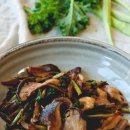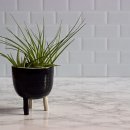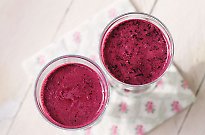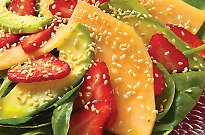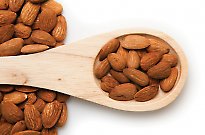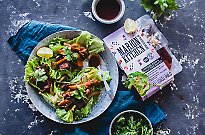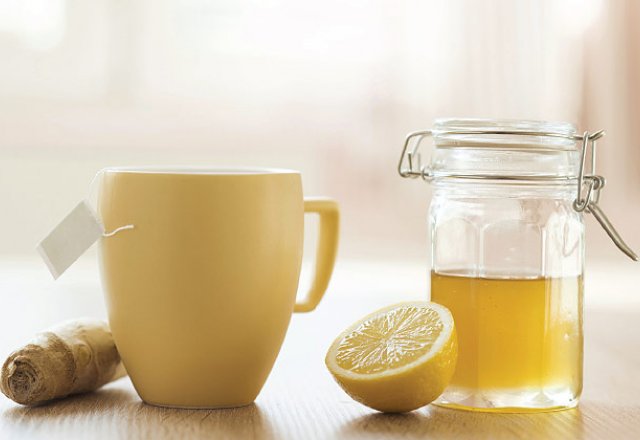
Preventing winter sadness
Preventing winter sadness

Of course, that’s not all they are, but most experts in this field will agree that feeling glum will create inflammation in our body; equally, having an overly acidic/inflamed system can attribute to mood disorders, writes Janella Purcell.
Ideally, we want an alkaline system with a pH of about seven. Anything below this and we are in an acidic state, which can occur from an acid-forming diet, emotional stress, a toxic chemical overload, and/or immune reactions – or any process that deprives the cells of oxygen and other nutrients.
The body will try to compensate for an acidic pH by using alkaline minerals. If the diet does not contain enough of the right nutrients to compensate, a build-up of more acids in the cells will occur.
How does our body become overly acidic or inflamed? It can be due to what is coming into our body from the external environment, like free radicals in things like pollution and toxic cleaning and body products, or from negative emotions that hang around too long.
But the question is…what comes first? The mental state creating the physical symptoms? For example, from long-term, unresolved sadness making the lungs weak – as this is where we store grief and sadness – or chronic exposure to too many toxic chemicals creating the inflammation?
There are other contributing factors of course, and sunlight is one of them. It’s true that many of us feel a bit ‘flat’ in the depths of winter. It’s also true that winter is the season when our kidneys are the most sensitive, and guess which emotions are stored in this organ? Anxiety and fear. Winter is a time to go inwards, have a look at your life and decide what you’ll be taking with you into a new cycle that starts again in spring. Many of us are not used to or like doing this kind of spiritual work, but it’s so necessary if you want a rich, rewarding, peaceful, healthy and content life.
In 1984 a new disorder was named – SAD: Seasonal Affective Disorder. SAD is also known as winter depression, winter blues, or seasonal depression. It’s considered a mood disorder where certain people experience depressive symptoms in winter (or sometimes in summer also). There are now many different treatments for classic (winter-based) seasonal affective disorder, including light therapy with sunlight or bright lights, antidepressant medication, cognitive behavioural therapy, ionised air, and carefully timed supplementation of the hormone melatonin. St John’s Wort has also been shown to be very effective and there are other herbs that are used with success, like the little known magnolia, which I am loving using in my clinic.
Symptoms of SAD may consist of symptoms such as difficulty waking up in the morning, nausea, wanting to sleep and eat – a lot. Cravings for carbohydrates and sugar are common also. Other symptoms include a lack of energy, difficulty concentrating on or completing tasks, withdrawal from friends, family and social activities, and decreased sex drive. Sounds like a type of depression, right? People who experience spring and summer depression show symptoms of classic depression including insomnia, anxiety, irritability, decreased appetite, weight loss, social withdrawal and decreased sex drive. Whatever the name for it, it’s debilitating, as anyone who has ever experienced the ‘black dog’ or has been ‘in the dark wood’ – as I like to call it – would know. So what can we do to get out of it?
Whatever is causing the inflammation or acid in our body needs to be removed – or dealt with – otherwise the inflammation present makes it just about impossible to have a well-functioning system, or life. Inflammation is involved in most if not all of our diseases and imbalances.
Perhaps the easiest and fastest way to deal with SAD is by reducing your exposure to the physical issues causing the imbalance – free radicals – and the best way to do this is to use organic skin, hair, body and oral care products, and by using cleaning products that are free of sulphates, bleach and other dangerous chemicals. Keep some plants in your home to help purify the air and eat an organic, mostly plant-based diet.
One of the best things we can do to correct an overly acid body is to clean up our diet and lifestyle. Generally, an alkaline diet will include most fruits, green vegetables, peas, beans, lentils, spices, herbs and seasonings, and seeds and nuts. All melons are alkalising.
Generally, acid-forming foods include all processed foods, meat, fish, poultry, eggs, grains and legumes.
The reason acidosis is more common in today’s society is mostly due to the typical Western diet, which is far too high in acid-producing animal products such as meat, eggs and dairy, and far too low in alkaline-producing foods like fresh vegetables.
Additionally, we eat lots of acid-producing processed foods such as white flour and sugar and drink beverages such as coffee and soft drinks. We use too many drugs, which are acid forming; and artificial chemical sweeteners like NutraSweet, Spoonful, Sweet’N Low, Equal with additives such as aspartame.
What role does our gut have in a peaceful state of mind? Around 90 per cent of the body’s supply of serotonin – the happiness chemical – is synthesised in the gastrointestinal tract; so if you have a less-than-healthy gut, then chances are your mind is going to be feeling the same way – less than healthy. So it makes sense that by cleaning the toxins and ancient food matter out of your GI tract you will be happier, as you will be able to synthesise serotonin more efficiently!
Foods to include
- Antioxidants – Foods high in vitamin A, C, D and E; zinc, selenium.
- Omega 3s – The body cannot produce its own essential fatty acids (EFAs)* so they must be obtained through your diet. They are anti-inflammatory and sources include hemp, chia and flax seeds, walnuts, green-lipped mussels, macadamias and seaweed, and sustainable, local seafood. It’s also important to reduce omega 6 oils – these are in processed foods and too many grains, and to eat those foods with a good balance of all three.
- Turmeric – is a strong anti-inflammatory and liver tonic, which will help remove the free radicals.
Lemon in raw honey and warm water is very alkalining. Try it first thing in the morning. Drink it all day and add the smallest pinch of Himalayan crystal salt. Honey is the only alkalising sweetener (though just slightly).
Avoid
- White flour and products
- Chemicals in your food, animal products (raw meat is more alkaline than cooked) and packaged food. Go organic!
- Too much alcohol
- Aspartame and other artificial sweeteners
- Sugar and other refined and highly processed foods. All junk food. Excessive sugar consumption increases blood lactate levels, which is acid forming
- Too much caffeine, especially instant coffee. Organic (and fair trade) is much less acidic
- Processed and refined salt.
In order to have a better chance at being free from mood disorders – keep your body, mind and spirit as healthy as you can, as much as you can. Do this by keeping your liver happy so it can aid in the elimination of free radicals; keep your gut clear by regularly de-toxing and eating well; exercise, and avoid the things that create acid, especially emotional stress.
The most acid-forming things are overwork, anger, fear, jealousy, stress, artificial sweeteners and highly processed food, including GMO food and factory-farmed animal products. The most alkaline-forming things are meditation, prayer, peace, kindness, love, asparagus, lemons and melons.



